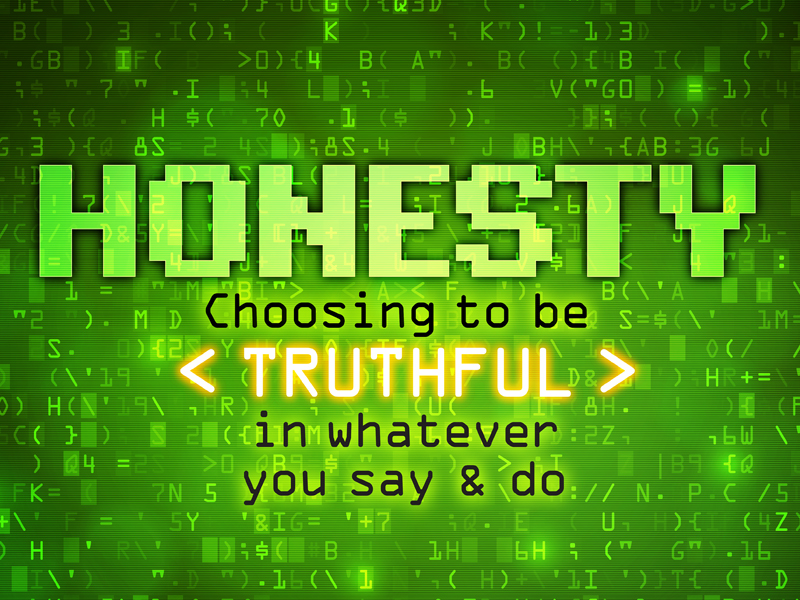HONESTY
Choosing to be truthful in whatever you say and do.
MEMORY VERSE
Anyone who lives without blame walks safely. But anyone who takes a crooked path will get caught. ~ Proverbs 10:9
WEEK 1:
We start the month in 2 Kings 5 and learn more about the prophet Elisha and his servant named Gehazi. After Elisha helped Naaman, Gehazi saw Elisha turn down an extravagant gift from Naaman. But Gehazi decided that he could take advantage of the situation and take the gift for himself. He went behind Elisha’s back, denied his actions, and inevitably lost Elisha’s trust.
Bottom Line: When you’re not truthful you lose trust. If you continually tell lies and hurt people with dishonesty, eventually you will lose the trust of those around you. We hope kids realize that honesty helps them build relationships with others.
Week 2:
Next, we look to 1 Samuel 21-22. David is on the run from King Saul and escapes to the town of Nob where he asks the priest Ahimelek for help. Ahimelek asks some questions, but instead of telling the truth, David spins a tale that ends up getting Ahimelek killed when King Saul found out. David found out the hard way that lies have severe consequences.
Bottom Line: When you’re not truthful, you hurt others. We tend to think that if we lie, we’re only helping ourselves get out of trouble or get something we want. But lies have consequences. Often those repercussions extend beyond ourselves to the people we lie to or lie about. We pray that kids will realize that telling the truth keeps everyone from experiencing unnecessary pain.
WEEK 3:
There’s an important story about honesty throughout the book of Esther. Haman has just been promoted as the king’s most important advisor. Haman lets this go to his head and commands that everyone bow to him. But there’s one man who won’t: Mordecai. Haman is so angry that he vows to destroy not just Mordecai, but all of his people, the Jews. Little does Haman know, but Mordecai has family in high places. Queen Esther risks everything to save her people. Once her plan with Mordecai is set in motion, Haman’s dishonesty to hurt others ends up hurting himself instead.
Bottom Line: When you lie to help yourself, you hurt yourself instead. Sometimes we have a tendency to lie in order to make ourselves look good. But we can’t keep the lie for long. Eventually we’ll be found out and our lie will only hurt ourselves.
WEEK 4:
Finally, we head to a principle found in 1 John 1:9 where we discover that not only is it important to be honest with everyone, but it’s even more important to be honest with God. God already knows what’s going on in your heart, but He wants to hear from you— even when it’s to confess the times we’ve messed up.
Bottom Line: Being truthful with God helps keep you close to Him. We don’t have to worry about telling God what we’ve done wrong. Our honesty with God will keep our relationship with Him strong.



Follow Us!